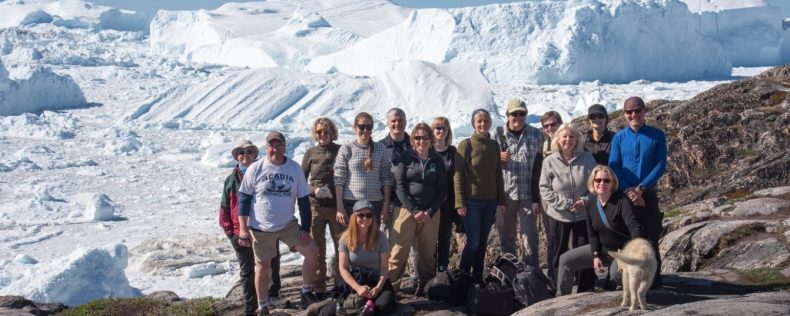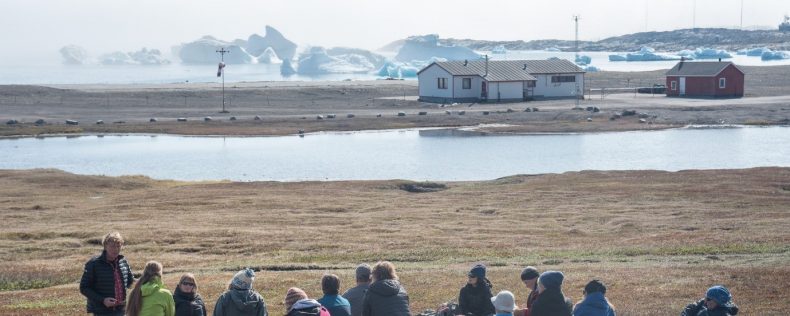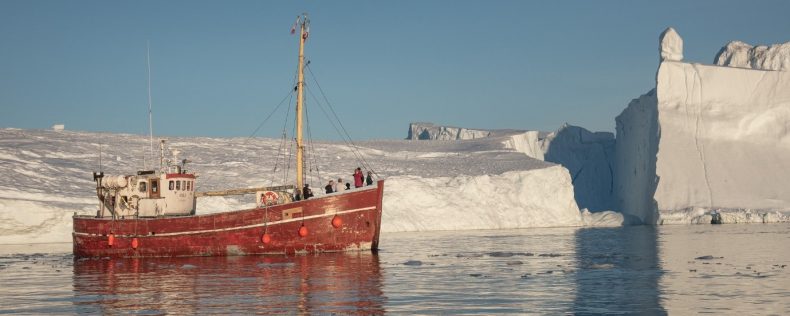DIS offers a wide scope of courses that focus on the Arctic, from Ice Cores and Ice Ages to Polar Biology. Recently, students had the chance to participate in a research project, investigating the ice flow of the Greenland Ice Sheet.
This spring, Environmental Science of the Arctic faculty, Susanne Lilja Buchardt and Astrid M.A. Schmidt as well as project manager Rikke Kolbech coordinated a five-day expedition to Greenland. The 15-people expedition was a mix of DIS faculty, faculty from nine different U.S. partner schools, and a researcher from the Greenland Institute of Natural Resources.
The expedition set out with two main goals:
- Identify ways to further involve students in research: How can research enhance student learning and how can students contribute to research?
- Develop collaborative research projects within the core academic areas of citizen science, marine biology, glaciology, and climate change
The group traveled to Disko Bay on the western coast of Greenland. The water in this area is known to be teeming with sea life and has attracted international scientists for centuries.
The expedition cumulated to the researchers’ presentations, which sparked many exciting conversations about new potential research collaborators, new research models, and a possible upcoming research project on marine plastic.
The expedition to Disko Bay brought together researchers from all around the world to a place that by its sheer scale alone brings things into prospective. The trip also illustrated the strong ties that DIS has made locally in Greenland over the years in the form of our faculty’s field experience and through the good local relationships.
>> Explore all the courses on the Environmental Science of the Arctic
>> Learn more about undergraduate research abroad
Back to all news


